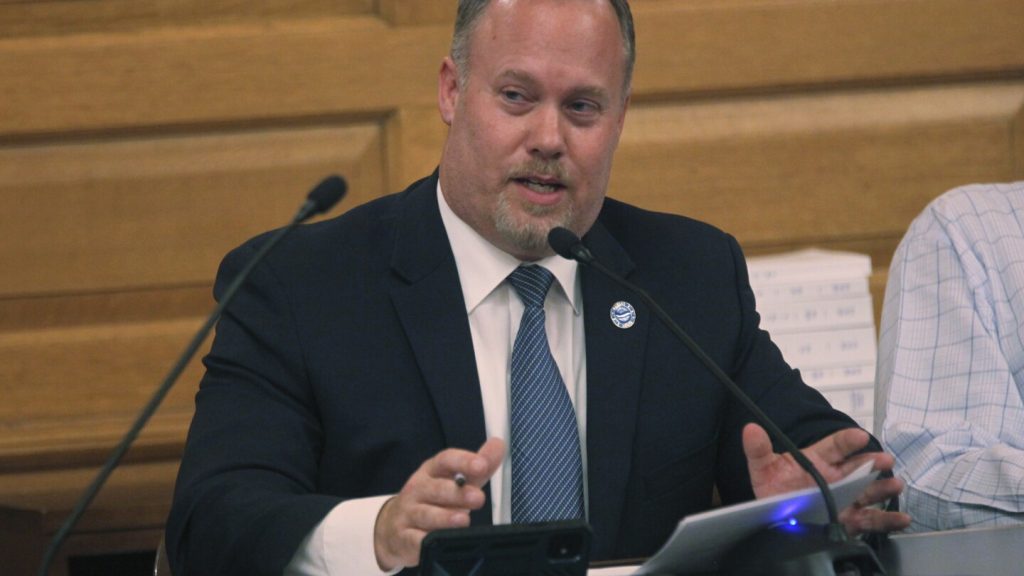Kansas legislators, divided along party lines, approved a bill cutting income, sales, and property taxes by over $1.5 billion over three years. However, Democratic Gov. Laura Kelly expressed concerns about the plan, hinting at a possible veto. The bill aims to establish two personal income tax rates instead of the current three and eliminate income taxes on retirees’ Social Security benefits. It also includes reductions in state-imposed property taxes for schools and an early expiration of the 2% sales tax on groceries.
Despite Kansas’ financial surplus, the state has struggled to pass tax cuts, unlike Georgia and other states that have successfully implemented tax reductions. The bill faced opposition from some Democratic lawmakers and uncertainty regarding the possibility of overcoming a potential veto. The current political deadlock mirrors previous debates around tax cuts following a controversial experiment under former Republican Gov. Sam Brownback that led to budget shortfalls. Gov. Kelly, who campaigned against Brownback’s policies, has been cautious about endorsing significant tax changes.
Kelly’s administration proposed a compromise plan that preserved three income tax rates but reduced the top rate to 5.5%. House Democrats, however, rejected this plan, leading to the approval of the bill with two tax rates. Supporters of the bill argued that it offered relief to low-income earners by eliminating income taxes for couples earning $25,000 or less. While some Democrats and Republicans raised concerns about the plan’s impact on the budget in the long term, most lawmakers favored returning excess funds to taxpayers.
The bill’s passage highlighted divisions within the state legislature, with Democrats split on their support for the tax cuts. Gov. Kelly’s cautious approach towards tax reform reflects the lingering repercussions of previous tax experiments and budget challenges in Kansas. Lawmakers are set to reconvene later in the year to address remaining legislative issues, including the potential override of a veto from the governor. The ongoing debate underscores the challenges of implementing tax cuts in a politically polarized environment, where competing priorities and fiscal concerns create obstacles to effective governance.


